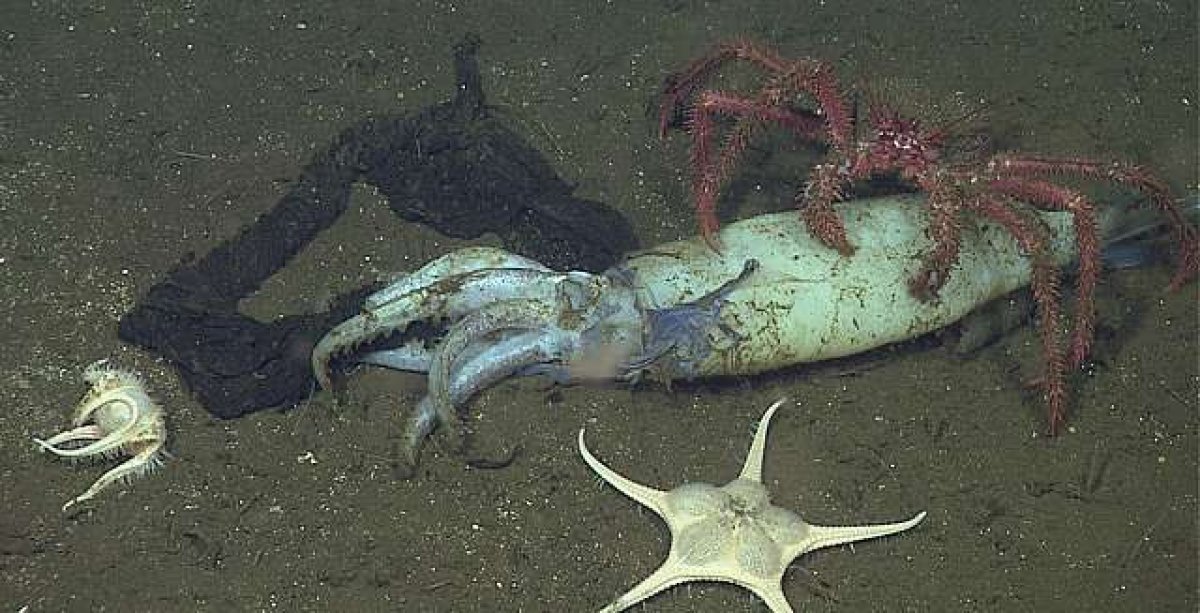When a mother squid releases her eggs, her work is done. Starving and out of energy, she quietly falls to the seafloor, where her body becomes a feast for other animals.
Scientists at the Monterey Bay Aquarium Research Institute, or MBARI, discovered what they call a "squid graveyard," where squid bodies and "egg sheets" litter the ocean floor. Crabs, starfish, sea cucumbers and other animals come to pick apart and eat the remains as baby squids hatch.
In 2012, MBARI researchers remotely piloted deep-sea vehicles on 80 dives around the Gulf of California in Mexico. During 11 of the expeditions, they found the remains of 64 squid that had hatched their eggs just before they died. Mostly, they found egg sheets.

When a squid lays eggs, they rest on an egg sheet made out of thin tissue. She holds this sheet in her tentacles, protecting it but also obstructing her mouth. Unable to eat, she swims the ocean floor with her precious clutch until she starves. When the eggs are developed enough, she releases them. Then, out of energy, she dies.
But where one life ends, others begin, and still others can are sustained. The dead squid bodies form an integral part of the ecosystem, as the MBARI researchers discovered. They researched the "squid graveyards" and found that they are an important source of carbon and other nutrients for deep-sea benthic communities. The researchers published their findings in the journal Proceedings of the Royal Society B.
According to the paper, the researchers aren't sure if the squid come to this area in the Gulf of California to die, or if the remains somehow end up in the area. They also aren't sure if the deaths are seasonal or sporadic. However, they do estimate they envision more squid graveyards in the future as overfishing and climate change increase squid populations.
"In this case the squid may die almost simultaneously, so there may exist pulses of dead squid falling to the seafloor," Henk-Jan Hoving, a former postdoctoral fellow at MBARI said in a statement. "This could have a big impact on the biological carbon pump."
Uncommon Knowledge
Newsweek is committed to challenging conventional wisdom and finding connections in the search for common ground.
Newsweek is committed to challenging conventional wisdom and finding connections in the search for common ground.
About the writer
Kristin is a science journalist in New York who has lived in DC, Boston, LA, and the SF Bay Area. ... Read more
To read how Newsweek uses AI as a newsroom tool, Click here.








